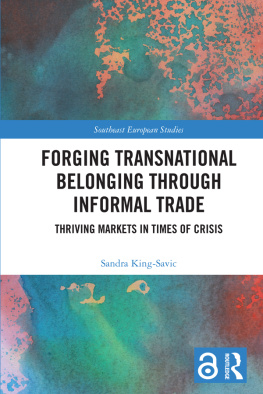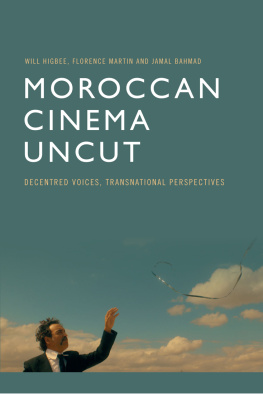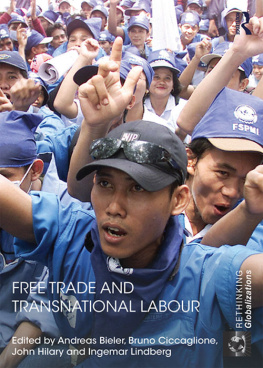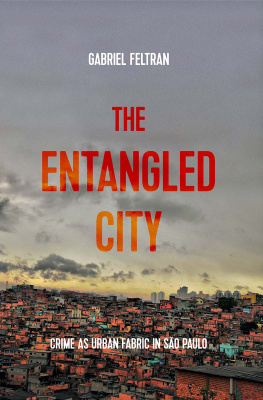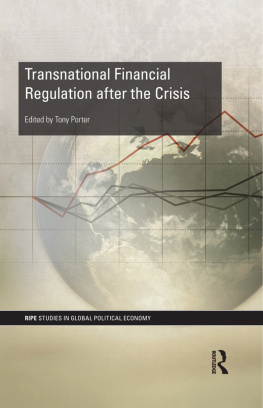Forging Transnational Belonging through Informal Trade
Analyzing informal trading practices and smuggling through the case study of Novi Pazar, this book explores how societies cope when governments no longer assume the responsibility for providing welfare to their citizens.
How do economic transnational practices shape ones sense of belonging in times of crisis/precarity? Specifically, how does the collapse of the Ottoman Empire and the subsequent migration of the Muslim Slav population to Turkey relate to the Yugoslav Succession Wars during the 1990s? Using the case study of Novi Pazar, a town in Serbia that straddles the borders of Montenegro, Serbia and Kosovo that became a smuggling hub during the Yugoslav conflict, the book focuses on that informal market economy as a prism through which to analyze the strengthening of existing relations between the migr community in Turkey and the local Bosniak population in the Sandak region.
Demonstrating the interactive nature of relations between the state and local and migr communities, this book will be of interest to scholars and students interested in Southeastern Europe or the Yugoslav Succession Wars of the 1990s, as well as social anthropologists who are working on social relations and deviant behavior.
Sandra King-Savic is a postdoctoral fellow at the Center for Governance and Culture in Europe (GCE) at the University of St. Gallen (HSG). She served as a human rights educator for Amnesty International and conducted research for the Foreign Military Studies Office at the University of Kansas (KU) before receiving a Swiss National Foundation scholarship for her dissertation on the transversal relationship between migration and informal markets.
Southeast European Studies
Series Editor: Florian Bieber
The Balkans are a region of Europe widely associated over the past decades with violence and war. Beyond this violence, the region has experienced rapid change in recent times though, including democratization, economic and social transformation. New scholarship is emerging which seeks to move away from the focus on violence alone to an understanding of the region in a broader context drawing on new empirical research.
The Southeast European Studies Series seeks to provide a forum for this new scholarship. Publishing cutting-edge, original research and contributing to a more profound understanding of Southeastern Europe while focusing on contemporary perspectives the series aims to explain the past and seeks to examine how it shapes the present. Focusing on original empirical research and innovative theoretical perspectives on the region the series includes original monographs and edited collections. It is interdisciplinary in scope, publishing high-level research in political science, history, anthropology, sociology, law and economics and accessible to readers interested in Southeast Europe and beyond.
The Politics of Memory of the Second World War in Contemporary Serbia
Collaboration, Resistance and Retribution
Jelena ureinovi
Social Mobilization Beyond Ethnicity
Civic Activism and Grassroots Movements in Bosnia and Herzegovina
Chiara Milan
Memory Politics and Populism in Southeastern Europe
Edited by Jody Jensen
Forging Transnational Belonging through Informal Trade
Thriving Markets in Times of Crisis
Sandra King-Savic
For more information about this series, please visit: https://www.routledge.com/SoutheastEuropeanStudies/bookseries/ASHSER1390
First published 2021
by Routledge
2 Park Square, Milton Park, Abingdon, Oxon OX14 4RN
and by Routledge
52 Vanderbilt Avenue, New York, NY 10017
Routledge is an imprint of the Taylor & Francis Group, an informa business
2021 Sandra King-Savic
The right of Sandra King-Savic to be identified as author of this work has been asserted by her in accordance with sections 77 and 78 of the Copyright, Designs and Patents Act 1988.
The Open Access version of this book, available at www.taylorfrancis.com, has been made available under a Creative Commons Attribution-Non Commercial-No Derivatives 4.0 license.
Trademark notice: Product or corporate names may be trademarks or registered trademarks, and are used only for identification and explanation without intent to infringe.
British Library Cataloguing-in-Publication Data
A catalogue record for this book is available from the British Library
Library of Congress Cataloging-in-Publication Data
Title: Forging transnational belonging through informal trade : thriving markets in times of crisis / Sandra King-Savic.
Description: Abingdon, Oxon ; New York, NY : Routledge, 2021. | Series: Southeast European studies | Includes bibliographical references and index.
Identifiers: LCCN 2020051436 (print) | LCCN 2020051437 (ebook) | ISBN 9780367900731 (hardback) | ISBN 9781003022381 (ebook)
Subjects: LCSH: SmugglingSocial aspectsSerbiaNovi Pazar. | Informal sector (Economics)SerbiaNovi Pazar. | Transnationalism Economic aspectsSerbiaNovi Pazar. | MuslimsSerbiaNovi PazarSocial conditions. | Belonging (Social psychology)SerbiaNovi Pazar. | Novi Pazar (Serbia)Economic conditions. | Novi Pazar (Serbia)Social conditions. | SerbiaForeign economic relationsTurkey. | TurkeyForeign economic relationsSerbia.
Classification: LCC HJ7015 .K56 2021 (print) | LCC HJ7015 (ebook) | DDC 382dc23
LC record available at https://lccn.loc.gov/2020051436
LC ebook record available at https://lccn.loc.gov/2020051437
ISBN: 978-0-367-90073-1 (hbk)
ISBN: 978-0-367-75403-7 (pbk)
ISBN: 978-1-003-02238-1 (ebk)
Typeset in Times New Roman
by Apex CoVantage, LLC
There are a great many people who supported my research project, the result of which is this publication. I am deeply grateful to those individuals who participated in this research in and out of the field. The completion of this study would have been impossible without your willingness to invite me to your homes and into your lives.
The Center for Russian, East European and Eurasian Studies (CREES) at the University of Kansas (KU) initially enabled this research financially and logistically. My research was financed by a joint initiative between KU, the Foreign Military Studies Office (FMSO), and the Foreign Language and Area Studies (FLAS) scholarship. Just as important was the camaraderie among peers, including Austin Charron who supported me in the creation of a proper questionnaire. I received invaluable academic support from Mehrangiz Najafizadeh, who read countless drafts of my MA thesis which ultimately turned into a PhD dissertation and then this book. Eve Levin supported my efforts at securing funding, and Donald Stull introduced me to the art of doing anthropology.
The Department for Russian Culture and Society at the University of St. Gallen (HSG) enabled all subsequent research trips since 2013, including travel, room and board, and the administration of the questionnaires. Ulrich Schmid was not only an academic adviser but also turned into an important collaborator and friend. His advice and critical assessment of my work continues to shape my academic development.


